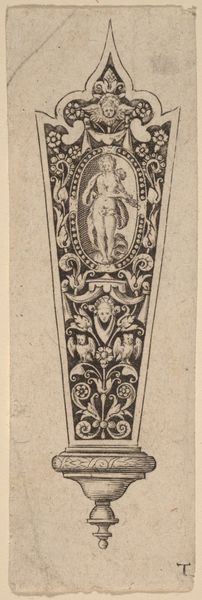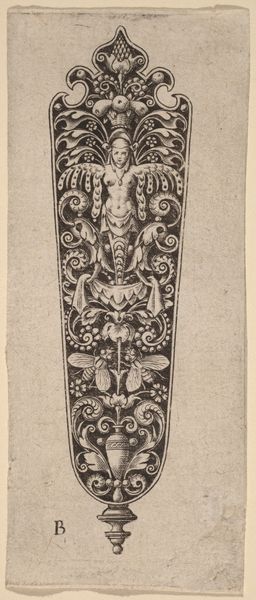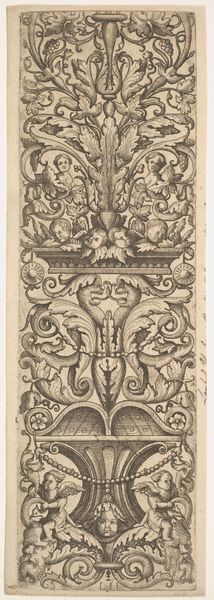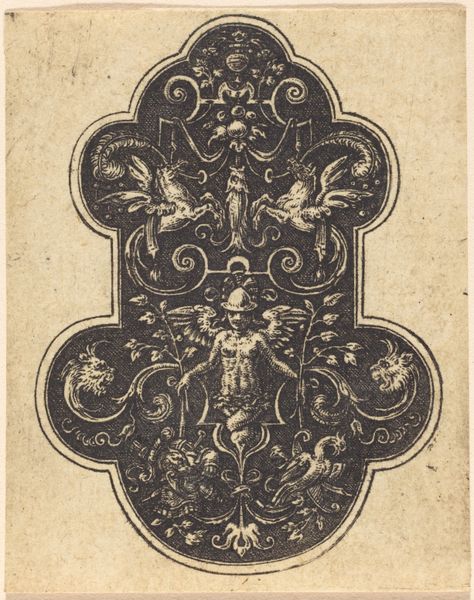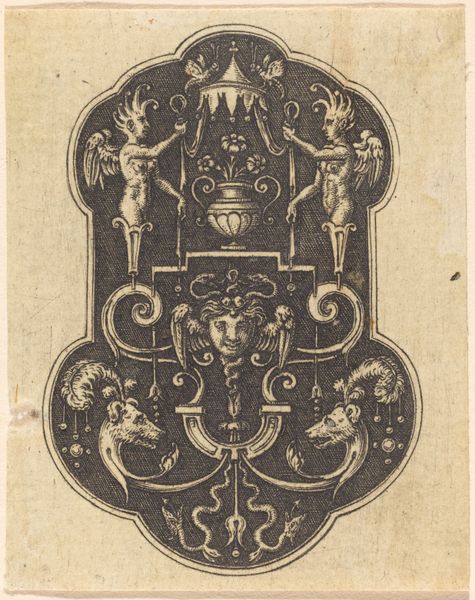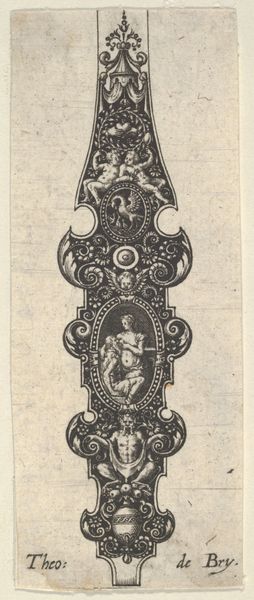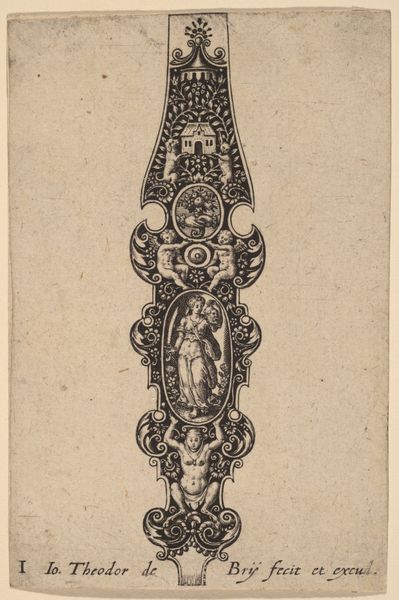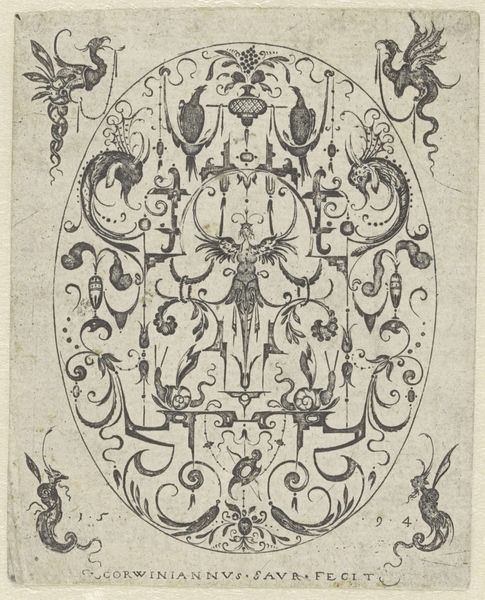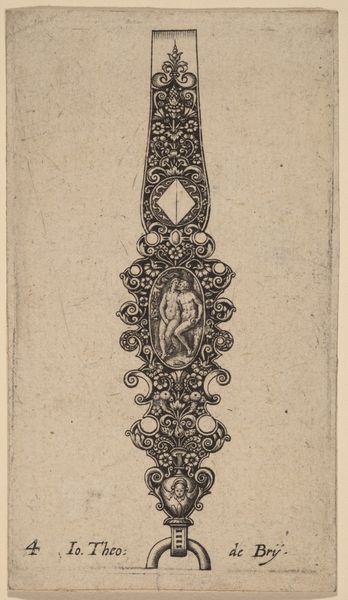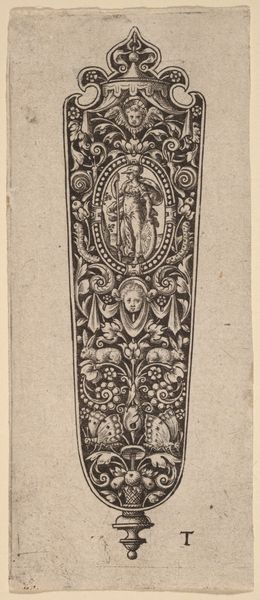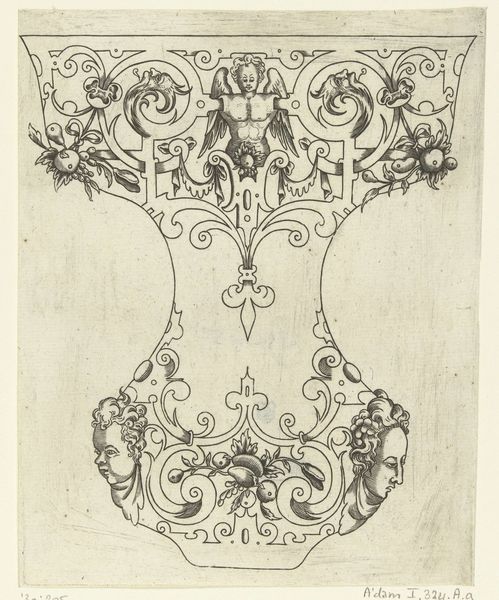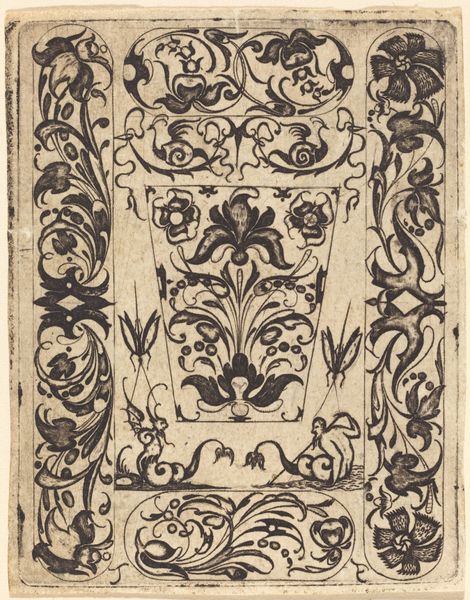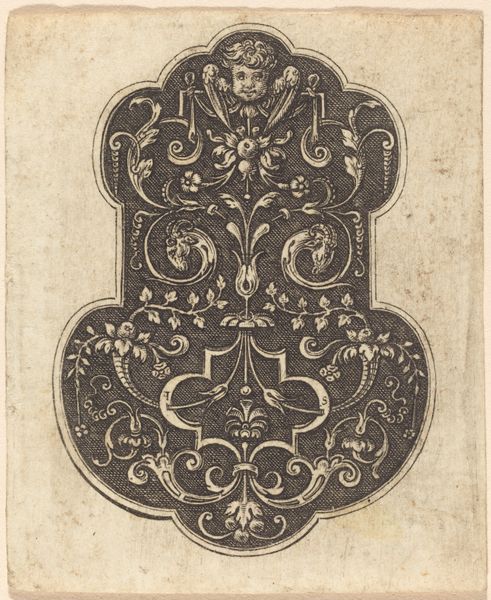
drawing, ornament, print, etching, ink, engraving
#
drawing
#
ornament
#
toned paper
#
pen drawing
# print
#
pen sketch
#
etching
#
old engraving style
#
11_renaissance
#
personal sketchbook
#
ink
#
ink drawing experimentation
#
pen-ink sketch
#
pen work
#
sketchbook drawing
#
sketchbook art
#
engraving
Copyright: National Gallery of Art: CC0 1.0
Curator: This captivating image is called "Ornament for Knife Handle," created by Theodor de Bry. It’s an engraving, using ink on toned paper. A beautiful example of Renaissance ornamental design. What do you think? Editor: At first glance, it feels strangely decadent, but restrained. It's detailed but stark, the monochrome adding a sense of timelessness, wouldn’t you say? Like it belongs in a cabinet of curiosities. Curator: Precisely. Let's consider the socio-political context. Knife handles weren't merely functional; they were potent signifiers of status. De Bry, active during a time of religious conflict and colonial expansion, created designs reflecting the era’s power structures. Who gets to hold the knife, becomes a pressing question. Editor: It's interesting you mention power, especially when we consider the imagery. What are we seeing depicted? I notice classical figures, scrolls, dolphins... quite an assembly. Curator: Exactly. There’s a goddess-like figure near the top. The inclusion of these motifs certainly elevate the object from a simple tool to something imbued with meaning, and intended for someone of privilege. And we have to note, these ornaments, though seemingly innocuous, were instruments perpetuating class and power imbalances in very real ways. Editor: I am curious, who do you see this design impacting, outside the elites? Would the print format make it more widely seen? Curator: It is definitely a form of propaganda, of power consolidated within strict class-based stratifications. Its public function is of significant interest as something reproducible beyond an singular setting. Editor: A vital distinction. So it becomes both art and social documentation? The role of art extending beyond mere aesthetic appeal into societal power structures of a specific context. That resonates with a lot of today's important themes in the artworld, doesn’t it? Curator: I completely agree. Examining historical objects through a contemporary lens lets us see their resonance—both intended and unintended. I find this detail on ornamentation fascinating. Editor: Me too. The intersection of form, function, and power - food for thought.
Comments
No comments
Be the first to comment and join the conversation on the ultimate creative platform.
